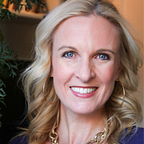JENNIFER BROWN, AN INTERVIEW: “INCLUSION, DIVERSITY & THE WILL TO CHANGE.”
A few weeks back, Jennifer Brown — an award-winning entrepreneur, dynamic speaker and diversity and inclusion expert, and the founder, president and CEO of Jennifer Brown Consulting, LLC — officially launched her new book “Inclusion: Diversity, The New Workplace & The Will To Change.” Not only did it shoot up to #1 in Amazon’s Best Sellers chart, but it was also awarded “#1 New Release” by Amazon in four different categories: Business & Organizational Learning, Business Consulting, Knowledge Capital, and Workplace Culture.
Right before the book launched, our team at JBC found a minute to ask Jennifer more about her reasons behind writing the book now, after more than 10 years consulting for Fortune 500 companies.
This is what she had to say:
Q. What message did you want to send with this book?
A. I see this book as a wake-up call. It’s an articulation of the fact that the status quo is not acceptable. And, by not maximizing certain voices in the workplace, we’re missing out.
That’s the business angle of it, but it’s also about the personal struggles and challenges that so many people feel — laboring in a system that wasn’t made by them or for them.
I’m really attuned to this, because I’m constantly in conversations with talent that’s not in the majority. I’m up close and personal with the disconnects they feel, the questions they have, and the lack of trust that they have in their employers. When they look upwards at senior leadership, they’re wondering, Am I really valued here?
The point of this book is to be that wake-up call for decision makers. It’s for people with power and privilege who have the ability and the platform to grasp the future and shift their organization towards being a more inclusive workplace, so that they don’t recruit people only to have them leave a year or two later.
That’s the untold story of what’s happening in Silicon Valley. Attrition rates are really high. Companies can barely bring talent through the door before they leave again because they don’t feel like they can be successful there. People get frustrated, or they burn out, or they feel isolated, or they just don’t feel like the company gets it.
I don’t think we have a grasp on that. I don’t see leadership really taking that to heart. And in all honesty, it’s a denial of the rate and pace of change and the scale of change. What got these leaders to a point where they are successful is not what’s going to get them through the next 10 years, or 15 years, or 20 years of their career because everything is shifting.
By 2040, non-Hispanic, native-born white people are predicted to make up less than 50% of the population. That day is coming, which means that leaders have to make a choice. They have to ask themselves, What kind of leader am I going to be? Am I going to embrace the change? Or am I going to deny it, and pretend like it’s not happening?
Q. Why this book now?
A. No movement for social change has really accelerated and ultimately prevailed without more people getting involved in the conversation.
Part of the goal of this book was to equip people with the information they would need to present and drive a compelling case in their workplace, while helping them understand the obstacles that they’re likely to face along the way.
The assumption is that everything moves forward. And the assumption in companies is that the more progressive voice is going to win. That’s simply not true. With mergers and acquisitions, we’ve seen companies come in and roll back a prior commitment to inclusion, or put it on hold indefinitely if the new leadership team doesn’t see it as a strategic differentiator.
So the question we need to be asking is, “Are you using your social capital, in a business context, to advocate for a workplace you would be proud of and that would be inclusive of those people who don’t look like you?”
I want to get more people excited about the opportunity to be change agents within their organizations — and beyond. I’d love to see people being more proactive about this.
Q. What do you hope will come from this book?
A. I hope that it comes to be viewed not just as a diversity book, but as a core argument for the major issues we’re facing today as a society.
When somebody picks it up and says, “I want my daughter to read this,” it catches me off guard, because it makes me realize that my tribe is actually much bigger than I thought.
It’s not just about corporations, it’s about families: parents and children. And it’s not just about big businesses, it’s about individuals: entrepreneurs and contractors and talent who left the workplace to do their own thing because they didn’t feel valued or protected.
The bottom line is that the future of work is in our hands…
And all of us have a role to play.
—
To find out more about Jennifer’s new book, “Inclusion: Diversity, The New Workplace & The Will To Change” and purchase your copy on Amazon, click here.
